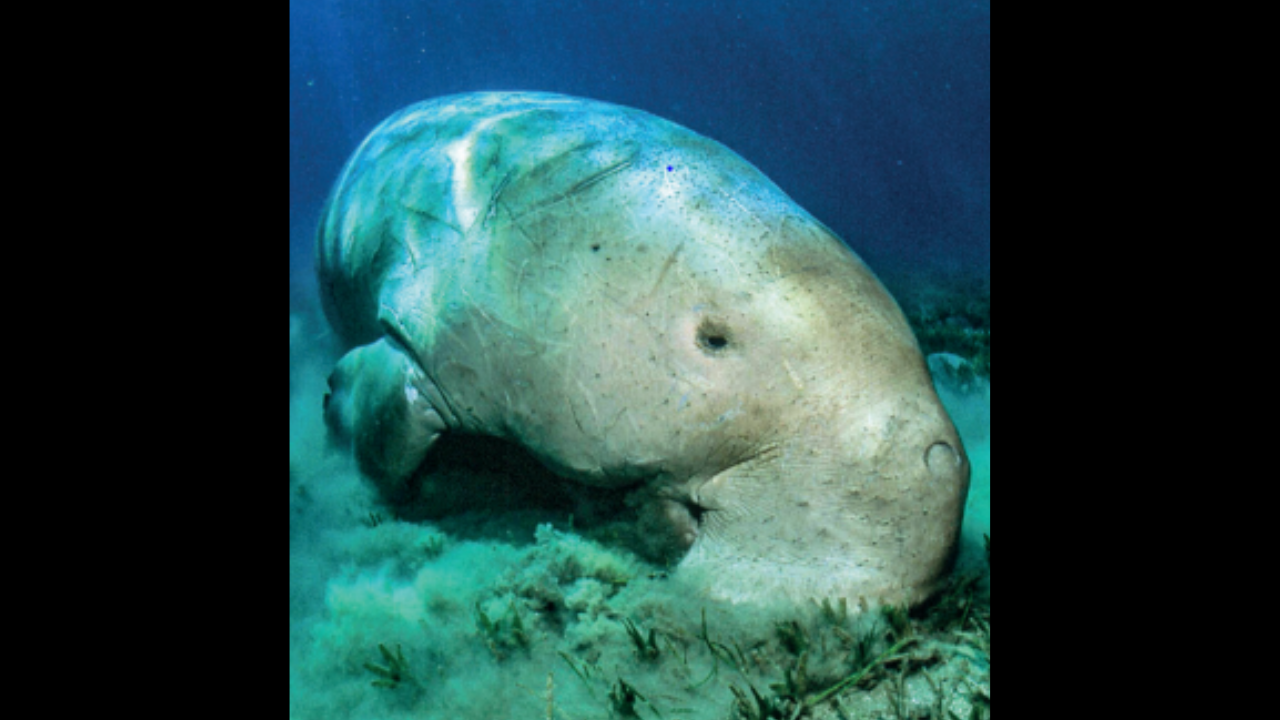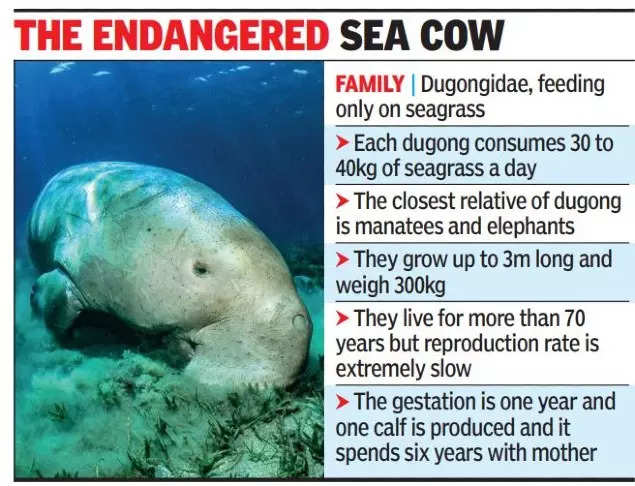
Researchers from the Dehradun-based Wildlife Institute of India recorded five dugong deaths in the Gulf of Mannar areas in the last 15 days, causing serious concern on the poaching of this highly-endangered marine mammal.
As World Ocean Day is observed on June 8, it is important to protect these gentle creatures of the sea, says Rukhmini Shekar from CAMPA - Dugong Recovery Project of Wildlife Institute of India.

Dugong, called an umbrell species by researchers, depends on seagrass, a habitat home to marine species like sea cucumbers, sea horses, starfish, pipe fish, shrimps many of which are protected under various schedules of the Indian Wildlife (Protection) Act of 1972 or are of great commercial importance in terms of fishery resources.
Seagrass acts as a nursery bed for commercially important fish. They also filter water by absorbing contaminants and pollutants entering the sea from land. This makes them more exposed to coastal pollution. Destruction of this habitat means the fall of an ecosystem. Similarly, conserving dugongs translates to conserving and maintaining balance in the entire ecosystem, she explained.
Dugong or the sea cow is a harmless herbivores marine mammal. They are found in fragmented populations from East African waters in the west to Vanuatu Islands in the east. Stable populations are found in Australian and Middle Eastern waters. It is interesting yet disheartening to know that the Indian coast has been home to these mermaids, and that home is slowly being destroyed.
There are some 250 dugongs in Indian waters in which 150 of them are in the Gulf of Mannar and Palk Bay of Tamil Nadu. A smaller population lives in the Andaman and Nicobar Islands and Gujarat's Gulf of Kutch.
Rukhmini says destructive fishing techniques, strikes by boats, propeller hits and regular poaching for their meat-for food and beliefs that dugong oil and bones have medicinal qualities-are great threats to dugongs, especially in Tamil Nadu. "Saving dugongs definitely demands some compromise and strict adherence to rules by the fishing community. Being considered as vulnerable by IUCN, and a Schedule I species under the Wildlife (Protection) Act of 1972, harming dugongs is just as punishable as harming tigers in India. We are working with stakeholders to create awareness," she added.







